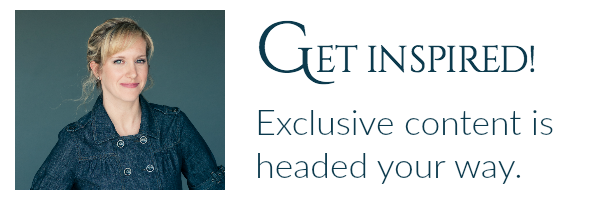The Freedom to Fail
“What is your number one goal for third grade?”
I watched her closely as she stared intently at the ceiling. It was the night before school started, and she is the one who needs a little probing if we’re to have any clue what’s happening inside that little brain of hers.
“Make friends?” she said, and she shrugged her shoulders. I knew she had a different answer to my question that she was afraid to share, so I pushed a little harder.
“You have friends already, and you’re so friendly that I know you’ll make new friends. What else are you hoping for this year?”
She sighed and shifted her focus to my face. “I want to make straight A’s.”
 This sweet child of mine has a feisty nature that constantly pushes for perfection. It’s not something that her father or I push on her, but it is innate to her character. She does not like to make mistakes, and she struggles with anything less than perfection. This is a blessing, but also a concern.
This sweet child of mine has a feisty nature that constantly pushes for perfection. It’s not something that her father or I push on her, but it is innate to her character. She does not like to make mistakes, and she struggles with anything less than perfection. This is a blessing, but also a concern.
The problem with perfectionism is we’re bound to fail. While I have a child on the other end of the spectrum who is perfectly content with average and generally not concerned with excelling (a trait that presents challenges of its own), this one takes perceived failure to heart, then she buries it there where it festers and grows until she slowly begins to shut down.
Nobody ever said parenting was easy, right?
I understand her, though, because I have a bit of perfectionism in me. By nature, I do not like to be wrong, to fail, or to make mistakes. I get very frustrated with myself when these things happen. Sometimes I don’t even realize that I’m fighting this feeling until I explode, a tidal wave of frustration spilling out in one ugly outburst.
In high school, I believe a counselor labeled this as obsessive-compulsive. Like my daughter, I have the tendency to perceive failure as simply not being good enough, and if I don’t feel like I can be good enough, then why keep trying? Why not focus my efforts on areas where perfection is attainable?
I know this child because she is very much like me.
There’s a balance to life. We learn this as we grow older, but I want to give her the tools she needs now to cope with failure. I want her to know she has the freedom to make mistakes, to stumble, to not be perfect. I do not expect perfection from any of my children.
I’m learning to not expect it from myself.
We talked a little bit about working hard in school, about doing her best and not worrying about the end result. “It’s okay if you don’t get straight A’s,” I told her gently. “I just want you to try hard.”
I could see her brow furrow, because I know what she’s thinking. If I try my best, I should be able to do this perfectly.
Ah, if only it were that easy.
I’ve been working feverishly on my e-book, preparing to launch it next week. As I did the necessary background work to release it, I found two typos in the manuscript. This is, obviously, not the end of the world. The woman designing the book for me has graciously helped me correct these typos so that I can publish a book that is as near perfect as it can possibly be.
But it hasn’t stopped me from berating myself a bit. I’m a writer and editor – how did I miss these things?!
I missed them because I’m human and I’m flawed, and I cannot always be perfect. But I can learn from my mistakes. I can be more careful in how I go about things. I can try harder to get it right.
And I can give myself the freedom to fail, to pick myself up and dust myself off, and to keep moving forward.
How will I teach my daughter that failure is not only necessary, but sometimes even vital to getting better?
I’ll show her. I have ample opportunity every day to model grace to her, both in how I respond to myself when I make mistakes, and how I respond to her.

